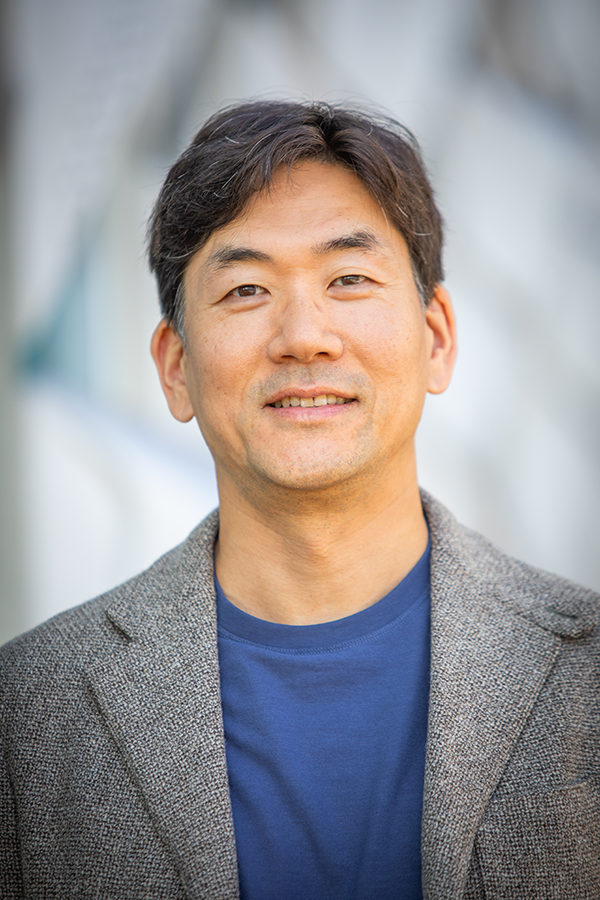News
CAMBRIDGE, Mass. - Gu-Yeon Wei, whose research combines computer science and electrical engineering in addressing technical barriers to faster, more efficient computers and portable electronic devices, has been named Gordon McKay Professor of Electrical Engineering at Harvard University.
Wei was previously associate professor of electrical engineering in Harvard's School of Engineering and Applied Sciences, where he has been a member of the faculty since 2002.
"From nanoscale circuits to low-powered computing to even the future 'brain' of micro air vehicles, Gu creates bridges between computer science and electrical engineering," says Cherry A. Murray, dean of the School of Engineering and Applied Sciences. "Working both from the top down and from the bottom up, he figures out how you go from designing circuits, to writing the right software, to integrating technologies into various computer architectures and systems. Gu is the definition of a creative, interdisciplinary engineer: a fearless problem solver through and through."
Wei's work focuses on high-speed, low-power digital and mixed-signal circuits. As portable electronics become ever more common, the demand for new ways to make these devices more energy efficient continues to grow. Wei's investigation of novel circuit designs and system-level hardware implementation techniques aims to reduce power consumption by these portable devices. His work to invent new wired communication building blocks is also enabling high-bandwidth communication among these devices.
Wei's research contributions have come in two primary areas: high-speed, low-power communication links and the interface between circuits and architecture. In the area of communication links, he is best known for a novel scheme for clock-data recovery and for introducing dynamic frequency and voltage scaling into I/O systems.
Wei's work in circuit-architecture interfaces has included significant contributions to low-power sensor network design, mitigating voltage emergencies, and addressing process variation. His current research seeks to maximize the energy and performance efficiency of future computing systems by focusing on the design and utilization of on-chip voltage regulators to enable fine-grained power management, and the design of specialized hardware for heterogeneous multi-core architectures.
Wei has collaborated with a number of industry sponsors, including Microsoft, which in 2008 awarded him and others a grant to develop hardware and software that consumes less power. Together with David Brooks and Michael D. Smith of SEAS, Wei will develop a "dynamic runtime environment" to link power use and load.
Wei holds a B.S. (1994), M.S. (1997), and Ph.D. (2001) in electrical engineering from Stanford University. He worked for one and a half years as a senior design engineer at Accelerant Networks, Inc., of Beaverton, Ore., before joining the SEAS faculty as an assistant professor in 2002. He was promoted to associate professor in 2006.
Topics: Electrical Engineering
Cutting-edge science delivered direct to your inbox.
Join the Harvard SEAS mailing list.
Scientist Profiles
Gu-Yeon Wei
Robert and Suzanne Case Professor of Electrical Engineering and Computer Science




